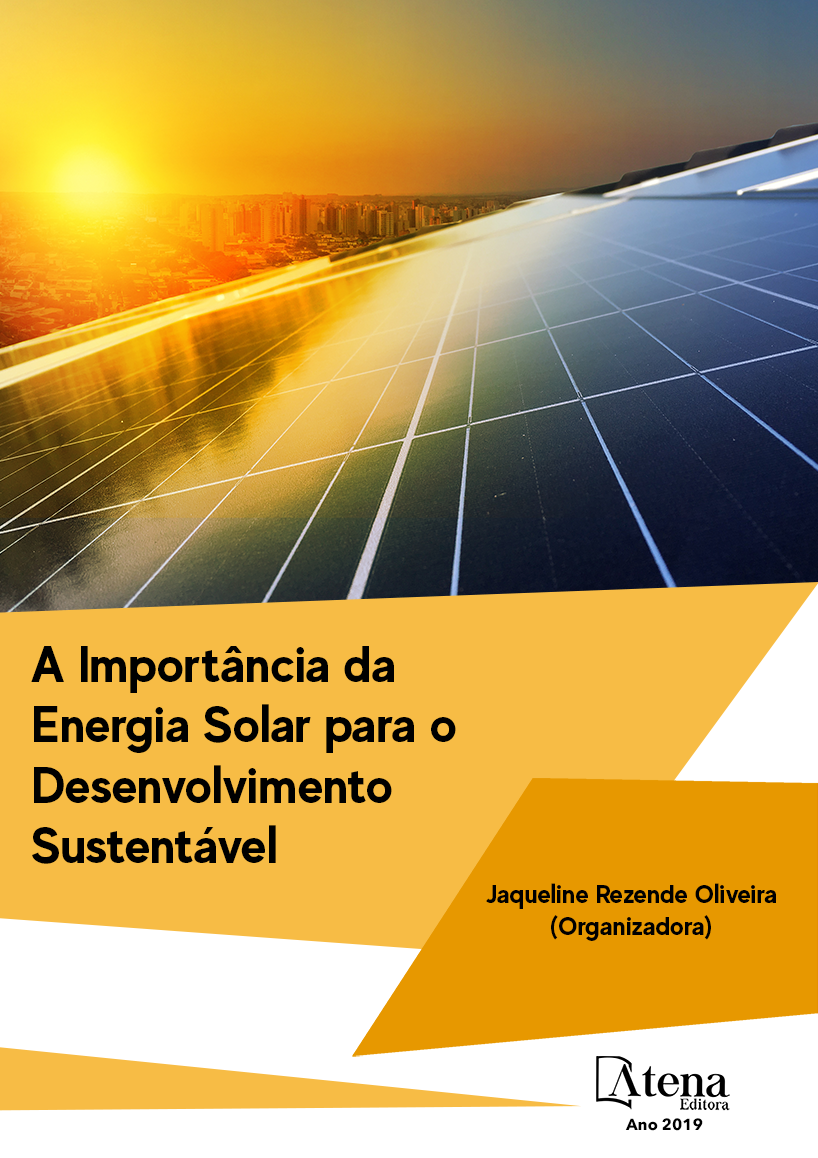
ANÁLISE DE VIABILIDADE TÉCNICA PARA A IMPLEMENTAÇÃO DE UM SISTEMA DE GERAÇÃO DE ENERGIA SOLAR FOTOVOLTAICA NO CENTRO DE EDUCAÇÃO AMBIENTAL DA ARCELOR MITTAL TUBARÃO
A busca por fontes de energia limpas
e renováveis tornou-se muito importante no
atual contexto mundial, devido ao esgotamento
e aumento do preço de combustíveis fósseis.
Além disso, uma série de consequências
negativas ao meio ambiente são geradas pelas
fontes fósseis, logo alternativas energéticas
que não acarretem tantos prejuízos são o alvo
de muitas pesquisas. É nesse contexto que a
energia fotovoltaica, que utiliza a radiação solar
para ser convertida em eletricidade, funciona
como uma forma de minimizar os problemas
com a poluição. As vantagens da energia
fotovoltaica são inúmeras, dentre elas há a
possibilidade de produzir energia em casa ou
levar a lugares não atendidos pela distribuidora
elétrica, como ilhas, campings, sítios, fazendas,
embarcações e comunidades distantes.
Em vista disso, neste projeto foi analisada
a viabilidade técnica para a implementação
de um sistema de geração de energia solar
fotovoltaica no Centro de Educação Ambiental
da Arcelor Mittal Tubarão (CEA), em Vitória,
ES. Foram analisadas as condições presentes
no CEA, como estrutura dos telhados, áreas de
sombreamento e consumo local. A decisão para
o dimensionamento não foi tão simples, pois são
poucos os telhados adequados para suportar o
peso do conjunto de módulos fotovoltaicos e
porque a área de sombreamento é significativa,
entretanto, foi possível dimensionar um sistema
isolado e um sistema conectado à rede para
atender ao local e para fins educativos.
ANÁLISE DE VIABILIDADE TÉCNICA PARA A IMPLEMENTAÇÃO DE UM SISTEMA DE GERAÇÃO DE ENERGIA SOLAR FOTOVOLTAICA NO CENTRO DE EDUCAÇÃO AMBIENTAL DA ARCELOR MITTAL TUBARÃO
-
DOI: 10.22533/at.ed.0031903092
-
Palavras-chave: Educação ambiental, Energia Solar, Fotovoltaica
-
Keywords: Environmental Education, Solar Energy, Photovoltaic
-
Abstract:
The search for clean and
renewable energy sources has become very
important globally, due to the exhaustion and
rising pricesof fossil fuels. In addition,a number of
environmentally negative effects are generated
by the use of fossil fuels as sources of energy
and thus alternative energies with less negative
impacts are the target of much research. In
this context, photovoltaic energy, the use of energy generated by the sun to generate electricity, works as a way to minimize the
problems with pollution generated by fossil fuels. The advantages of photovoltaic
energy are numerous, among them there is the possibility of producing energy at home
or bringing it to places not served by electricity distributors, such as islands, campsites,
ranches, farms, boats and remote communities. Due totgese advantages, this project
analyzes the technical feasibility for the implementation of a photovoltaic solar power
generation system at Environmental Education Center of Arcelor Mittal Tubarão (CEA),
in Vitória, ES. The infrastructure present at CEA was analyzed, like structure of roofs,
shading areas and local consumption. The decision for sizing was not simple, since
there are few roofs suitable to support the weight of the photovoltaic modules.Because
the shading area is significant, however, it was possible to scale both an Off-Grid
system and a Grid-tie system to supply CEA and for educational purposes.
-
Número de páginas: 51
- Bruna Machado Christ
- Stefanie Lievore Cruz
- WARLEY TEIXEIRA GUIMARÃES


